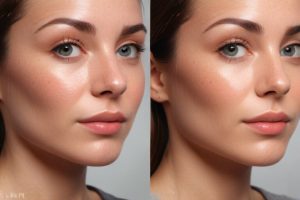
The quest for physical perfection has transcended mere aesthetic enhancement and delved deeper into the realms of emotional well-being. The emergence of dermal fillers as a popular cosmetic procedure raises intriguing questions about their psychological impact on individuals’ mental health. This article explores the intricate relationship between dermal fillers and emotional well-being, shedding light on both the positive and negative aspects of this phenomenon.
Understanding Emotional Well-being
Before delving into the psychological effects of dermal fillers, it’s imperative to grasp the concept of emotional well-being. Unlike physical health, which primarily concerns the body’s state, emotional well-being encompasses one’s overall mental health and satisfaction with life. It encompasses factors such as self-esteem, confidence, resilience, and the ability to cope with stressors.
The Rise of Dermal Fillers: A Trend or a Necessity?
The popularity of dermal fillers has soared in recent years, driven by societal pressures and the desire for a youthful appearance. While some view them as a mere trend, others consider them a necessity in maintaining a competitive edge in various aspects of life, including career advancement and social interactions.
Psychological Impact: Boosting Confidence and Self-esteem
One of the most cited benefits of dermal fillers is their ability to enhance confidence and self-esteem. By smoothing out wrinkles, restoring volume, and rejuvenating the skin, these procedures can help individuals feel more attractive and youthful, consequently boosting their confidence in both personal and professional settings.
Addressing Social Anxiety and Body Image Concerns
For many individuals, concerns about their appearance can lead to social anxiety and body image issues. Dermal fillers offer a potential solution by providing immediate results and improving perceived flaws, thereby alleviating anxiety related to one’s physical appearance and fostering a more positive self-image.
Managing Expectations: The Role of Education
However, it’s crucial to manage expectations regarding the outcomes of dermal filler procedures. While they can enhance certain features and address specific concerns, they are not a panacea for deeper psychological issues. Education about the limitations of these procedures is essential to prevent unrealistic expectations and potential disappointment.
Potential Risks and Negative Psychological Effects
Despite their benefits, dermal fillers also pose risks, both physical and psychological. Complications such as allergic reactions, infections, and asymmetry can lead to dissatisfaction and even psychological distress in some cases. Moreover, the pressure to maintain a flawless appearance can exacerbate feelings of insecurity and self-doubt.
Professional Consultation: The Importance of Mental Health Assessment
Prior to undergoing any cosmetic procedure, it’s crucial for individuals to undergo a comprehensive consultation, including a mental health assessment. This allows healthcare professionals to evaluate the patient’s motivations, expectations, and psychological readiness for the procedure, ensuring that it aligns with their overall well-being.
Post-Procedure Support and Counseling
Furthermore, post-procedure support and counseling play a vital role in ensuring patients’ emotional well-being. Addressing any concerns or insecurities that may arise following the procedure can help individuals navigate the emotional rollercoaster associated with cosmetic enhancements and maintain a healthy perspective on beauty.
Embracing Natural Beauty: Redefining Standards
Amidst the growing popularity of cosmetic procedures, there is a burgeoning movement towards embracing natural beauty and redefining societal standards of attractiveness. Encouraging individuals to accept their imperfections and appreciate their unique features can foster a healthier relationship with appearance and promote genuine self-confidence.
Societal Pressures vs. Personal Satisfaction
It’s essential to distinguish between external pressures to conform to societal beauty ideals and genuine personal satisfaction with one’s appearance. While external validation may provide temporary gratification, true contentment comes from within, rooted in self-acceptance and self-love.
Coping Mechanisms: Building Resilience Beyond Physical Appearance
Building resilience and coping mechanisms is essential for maintaining emotional well-being in the face of societal pressures and personal insecurities. Engaging in activities that promote self-care, pursuing meaningful relationships, and cultivating a positive mindset can bolster one’s mental health and fortify against negative influences.
Long-term Effects: Maintaining Emotional Well-being
As individuals age and undergo changes in their physical appearance, maintaining emotional well-being becomes an ongoing journey. Rather than relying solely on external interventions, cultivating inner resilience and embracing the inevitability of aging can lead to greater contentment and fulfillment in the long run.
Ethical Considerations in Cosmetic Procedures
Finally, ethical considerations surrounding cosmetic procedures, including dermal fillers, cannot be overlooked. Healthcare professionals have a responsibility to prioritize patients’ well-being over profit and to provide honest and transparent information about the risks and benefits of these procedures.
Get more tips on mental health through this article: A Boost from a Community: How Social Anxiety Disorder Support Groups Can Help
Conclusion: Striking a Balance Between Physical Enhancement and Mental Wellness
In conclusion, the psychological impact of dermal fillers on emotional well-being is a multifaceted issue with both positive and negative implications. While these procedures can boost confidence and self-esteem, they also carry risks and ethical considerations that must be carefully weighed. Ultimately, striking a balance between physical enhancement and mental wellness is paramount in promoting genuine happiness and fulfillment.

